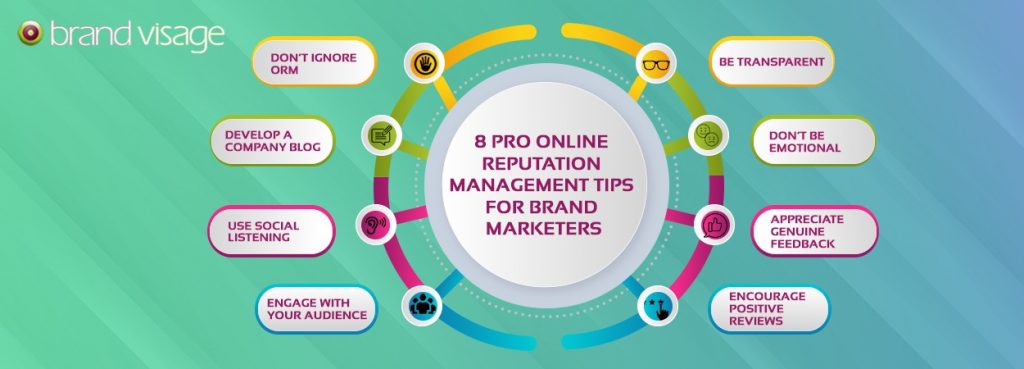For several years now online reputation management has been center-stage in the online marketing field. And, especially when it comes to enhancing and protecting the image of a brand, the contribution of online reputation management is irrefutable.
The internet as a medium is very dynamic and can often be quite chaotic. And, to navigate your brand through this challenging terrain, you need ORM.
Here are a handful of tips that will help you carry out your ORM activities effectively:
1. Be Transparent
Publishing false information about your brand is something that you should always be wary of. You may often be tempted to do so to get some windfall gains, but remember, in the long run, this could prove to be quite damaging. Transparency is greatly valued on the internet, and people are more likely to trust a brand that is transparent rather than the one that withholds information or publishes false information.
2. Don’t Be Emotional
The internet provides anonymity and gives people the freedom to be especially vicious and mean with their reviews. Remember, Going into a vengeful mode to protect your brand from such negativity can do more harm than good. Before you do anything, it is important to take a deep breath and give yourself a little time to think. While dealing with hate and abuse on the internet, you need to be calm & collected and reply to hateful comments and reviews with humility & intelligence.
Must Read: 10 PRO PR TIPS FOR BRANDS IN 2019-20
3. Appreciate Genuine Feedback
All negative reviews are not hated, many of them may be genuine feedback which could help you improve your overall brand experience. When you do get legitimate negative feedback, make sure to respond promptly and offer a solution as soon as possible.
4. Encourage Positive Reviews
Reading product reviews or comments about a brand is a big part of the online buying process. And, More often than not, people tend to trust a brand that has a lot of positive reviews. To encourage positive reviews, you should ask happy customers to write about their experience with the brand, and you can also thank people who are submitting positive comments.
5. Engage With Your Audience
One way to develop a deeper relationship with your audience is to have a more intimate engagement on social media & other online platforms. You can do this by simply replying to people’s comments and reviews about your brand or by carrying out interactive promotional campaigns (e.g. freebies, contests, etc).
6. Use Social Listening
Social listening is one of the most effective ORM tools. With the help of social listening tools like Hootsuite, Sprout Social & HubSpot, etc you can monitor the chatter about your brand, and create an ORM strategy accordingly.
7. Develop A Company Blog
Having a blog specially dedicated to your brand gives you the freedom to demonstrate your expertise in your field. Your blog can be a place where your loyal audience gets to know more about your brand.
8. Don’t Ignore ORM
Many businesses realize the importance of ORM only after a publicity crisis. And, very often the damage to the reputation of a brand can be irreversible. When it comes to online reputation management, the first step is to “Start Early”.
Lastly, you must remember that ORM is a long term process, and it will take some time before the results could show. With a lot of hard work and some patience, your ORM activities can do wonders for your brand.
